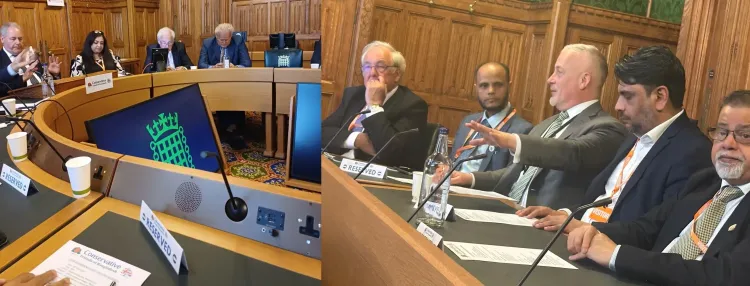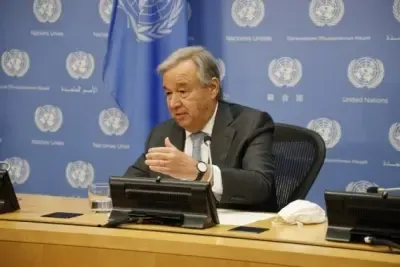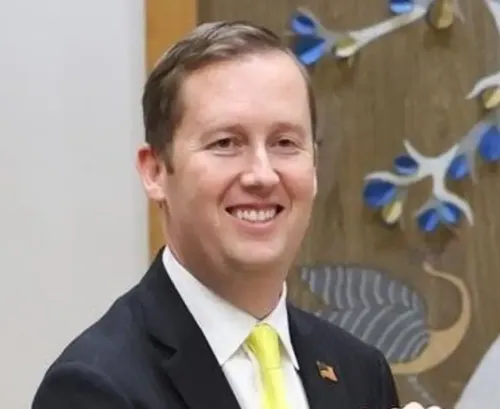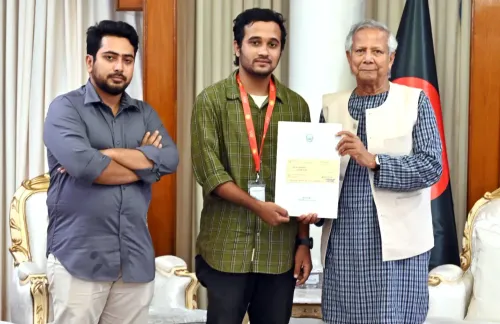Are British MPs Raising Concerns About Minority Persecution and Election Integrity in Bangladesh?

Synopsis
Key Takeaways
- Urgent calls for inclusive elections in Bangladesh by British MPs.
- Concerns about minority persecution and law enforcement issues.
- Need for international support to stabilize Bangladesh's political climate.
- Advocacy for a Truth and Reconciliation Commission to foster healing.
- Potential political shifts anticipated after Khaleda Zia's return.
London, May 29 (NationPress) Several prominent British MPs have raised alarms about the ongoing persecution of religious minorities and the deteriorating law and order situation in Bangladesh under the leadership of Muhammad Yunus and his interim government. They have once again urged for early, impartial, and inclusive elections in the nation.
This appeal was voiced during a meeting organized by the 'Conservative Friends of Bangladesh' at Westminster, chaired by Lord Jonathan P. Marland, who is the Chairman of the Commonwealth Enterprise and Investment Council.
The meeting saw the participation of Richard Fuller, MP for North Bedfordshire and Shadow Chief Secretary; Gareth Bacon, MP for Orpington and Shadow Transport Secretary; and Bob Blackman, MP for Harrow East and Chairman of the 1922 Committee, who all expressed their concerns regarding the troubling situation in Bangladesh.
Blackman raised issues concerning the daily threats faced by minority communities in Bangladesh and emphasized the need for inclusive elections.
Fuller highlighted the fragile state of Bangladesh under the interim government and called on the British authorities to collaborate with Bangladesh to advance democratic reforms and pave the way for general elections.
Bacon pointed out that the political transition in Bangladesh has been rocky and urged all parties involved to work in unison to stabilize the scenario and prepare for elections.
Lord Jonathan P. Marland expressed optimism that the people of Bangladesh could overcome future challenges with support from both local and international allies, hoping that the Conservative Party and its friends would find ways to assist Bangladesh in overcoming its crises.
Participants also conveyed deep concern over the plight of minorities amid the unstable political landscape and discussed the fragile economic situation. They committed to providing support from Conservative Party leaders to ensure free, fair, and inclusive elections, alongside revitalizing the economy and guaranteeing protections for minorities.
Previously, on April 8, Lord Alex Carlile of Berriew, a senior British politician and renowned jurist, led a seminar on 'Democracy, Human Rights, Good Governance, Rule of Law, and the Role of Political Parties' within Bangladesh's current political context at the House of Commons.
This event was organized by Conservative MP Bob Blackman, who emphasized the necessity for sincere efforts to make the upcoming elections in Bangladesh just and inclusive.
In a message, King's Counsel John Cammegh advised the Bangladeshi government to focus on democratization rather than pursuing an International Criminal Tribunal against the previous administration. He cautioned that such tribunals often become instruments of political retribution, leading to division and unrest. He advocated for a Truth and Reconciliation Commission to foster unity and healing in Bangladesh.
Meanwhile, the Chairperson of the Bangladesh Nationalist Party (BNP) and former Prime Minister, Begum Khaleda Zia, is anticipated to return to Dhaka from London by May 5. She had been in the UK for advanced medical treatment since January 8.
The issue of elections in Bangladesh is expected to gain traction following Zia's return, with mounting pressure on Yunus to set a date for the general elections. He previously indicated that elections could be scheduled for late 2025 or early 2026.








